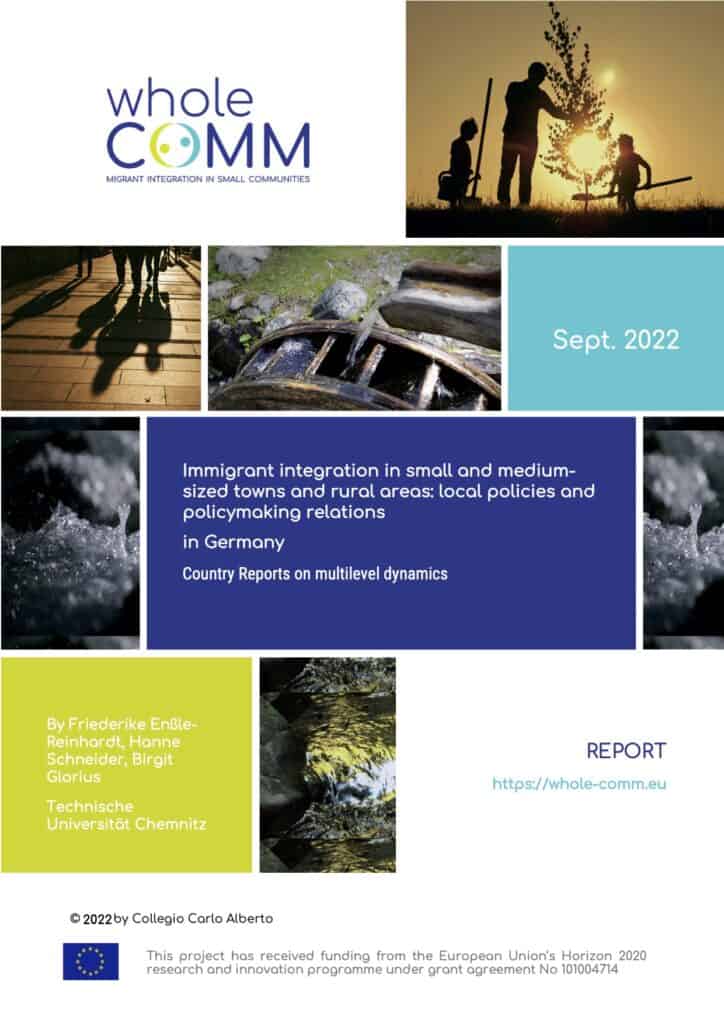This report looks at multilevel governance dynamics and at the integration policies targeting post-2014 migrants developed by six small and medium-sized towns and rural areas in Germany. Primarily based on interviews conducted in each of the selected municipalities, it provides an overview of
1) national, regional, and local integration policies targeting migrants in Germany;
2) policymaking relations among the key actors involved in these policy processes in the six localities and key features of policy networks within which these actors interact;
3) how these actors perceive and define integration.
The report finds that across all researched cases, Small and Medium-Sized Towns and Rural Areas (SMsTRAs) have actively engaged in post-2014 migrant reception and integration through the development of new and/or the intensification of existing programs. Still, due to the federal system in Germany, this happens in different frames, because of specific funding schemes and varying involvement of higher government levels in local activities. Especially in rural areas, competencies tend to be concentrated at the county level, leaving limited space for political actors to implement their ideas. Still, actors from civil society develop their own support structures regardless of the localities’ size and financial and administrative resources. Regarding multi-level governance relations, the report finds that these are important in terms of funding, on regional (Länder), national as well as EU level. Beyond funding, MLG have decreased after the immediate arrival of migrants in 2014/2015, and localities tend to work on local matters with local actors. The report further shows that social climate and experience with diversity in localities impact integration policies and integration outcomes. Across the six case studies, we find examples of successful policy implementation processes but also cases that fundamentally question the effectiveness of policies if locals in administration and civil society do not respond to them at all. Finally, the report stresses the role of local histories of migration and local narratives on diversity for the development of integration policies – in their focus, their implementation and their effects.
Authors: Friederike Enßle-Reinhardt, Hanne Schneider, Birgit Glorius


